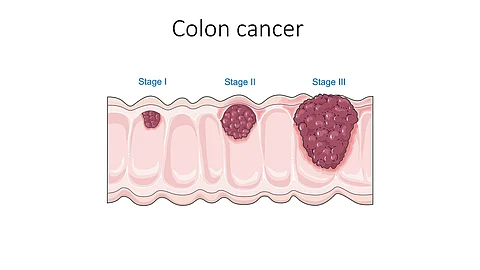

Colorectal cancer is the second leading cause of cancer deaths in both men and women in the United States. Although highly treatable and preventable, about 140,000 Americans are diagnosed and more than 50,000 people die each year, according to the Centers for Disease Control and Prevention (CDC). The United States Preventative Task Force recommends starting age of screening from 50 to 45.
More than 93% of colorectal cancer cases occur in people 45 years old or older. More than 75-90% of colorectal cancer cases can be avoided through early detection and removal of pre-cancerous polyps, and as many as 60% of colorectal cancer deaths could be prevented if men and women over the age of 45 were screened routinely.
Mount Sinai experts urge colon cancer awareness and education to reverse the decline in screening rates during the pandemic.
Prevention Tips:
Schedule a Screening: a colonoscopy is the preferred screening method as it allows for both detection and removal of precancerous polyps during the same procedure. Other screening options include a flexible sigmoidoscopy, CT colonography, and home-based stool tests including the fecal occult blood test (FOBT), fecal immunochemical test (FIT), and a combined fecal immunochemical test with DNA test (FIT-DNA test). Individuals should discuss all of these options with their doctor to find which method works best for their lifestyle.
Know Your Risk Factors:
Age - More than 90% of colorectal cancer cases occur in people 45 years old or older and death rate increases with age.
Family history – As many as 1 in 3 people who develop colorectal cancer have other family members who have been affected by this disease. The risk is even higher if a relative was diagnosed under age 50 or if more than one first-degree relative (parent, sibling, child) has been affected.
Racial and ethnic background – Colorectal cancer affects people of all races and ethnicities. However, colorectal cancer disproportionately affects the Black community, where the rates are the highest of any racial/ethnic group in the US. African Americans are 20% more likely to get colorectal cancer and about 40% more likely to die from colorectal cancer than most other groups. Colorectal cancer screening rates remain lowest among Black and Hispanic/Latino communities.
Lifestyle factors – Common lifestyle factors that may increase colorectal cancer risk include: obesity; cigarette smoking; lack of exercise; overconsumption of fat, red and processed meats; not eating enough fiber, fruits and vegetables; and drinking alcohol excessively.
Pre-existing health conditions – Inflammatory bowel diseases (IBD), such as ulcerative colitis or Crohn’s disease, and less common genetic syndromes, such as familial adenomatous polyposis (FAP) or Lynch syndrome, significantly increase the risk of developing colorectal cancer. These patients are recommended to start screening at a younger age and more frequently.
Warning Signs & Symptoms:
A change in bowel habits, such as diarrhea, constipation or narrowing of the stool, lasting for more than a few days
Rectal bleeding, dark stools or blood in the stool
Cramping or abdominal pain
Weakness and fatigue
Unintended weight loss
(MSM/Newswise)
